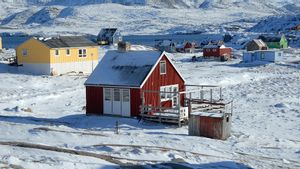JAKARTA - The European Commission (EC) is exploring ideas to reduce the climate impact of data centers and other HPC (High Performance Computations) deployments, by placing them in space.
In recent years, data centers have been placed in the desert or in the middle of the ocean. In the desert, there are often a few natural disasters that disrupt services and tend to provide a lot of solar power.
The oceans, such as Microsoft's Project Natick, help keep data centers cold. But there are no Earth-based data centers without emissions.
Therefore, the European Union thinks it can defeat this challenge by sending data centers into space.
The study led by EC Advanced Space Cloud for Net Zero Emissions and Data Sovereignty in Europe (ASCEND) is part of Horizon Europe's initiative and is supported by a budget of 2 million euros equivalent to Rp32.4 billion.
The program also collaborates with partners in the environmental, cloud computing, and space technology sector spearheaded by Thales Alenia Space, a joint venture between aerospace and European defense firm Thales and Leonardo.
The plan, the EC will build a data center fully powered by solar panels. This will provide hundreds of megawatts of electricity. Space data centers will connect to Earth using optical communications.
According to Thales Alenia Space, the European Union already has the basic technology to create a viable deployment scenario. However, rockets launching data centers into space also seem to be emitting a lot of carbon emissions.
In addition, long-term operations in space will also be a problem. Therefore, the first goal of this study is to assess whether building and launching a space data center will produce much lower carbon emissions.
It is claimed that the data center will be placed in Low-Earth Orbit (LEO). If all goes well, this extra-terrestrial data center can complete or replace several data centers on the ground.
Launching ExtremeTech, Wednesday, November 23, the next goal, this study will also develop the necessary launch solutions. Simply put, the station will reduce carbon emissions in the long term, and will remain good for the world's climate.
If ASCEND succeeds, the resulting technology could contribute to the EU's goal of achieving carbon neutrality by 2050 below the Green Deal or the Green Deal.
The English, Chinese, Japanese, Arabic, and French versions are automatically generated by the AI. So there may still be inaccuracies in translating, please always see Indonesian as our main language. (system supported by DigitalSiber.id)









